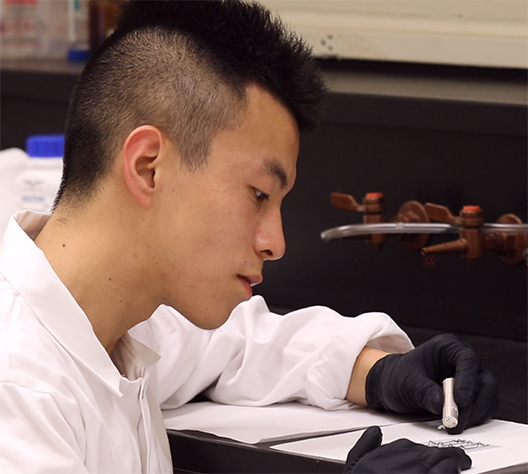
MSE Assistant Professor Xueju “Sophie” Wang recently published her article entitled “Tailoring the multi-stability of origami-inspired, buckled magnetic structures via compression and creasing” in Materials Horizons. The study was in collaboration with Professor Teng Zhang at Syracuse University and Professor Halim Kusumaatmaja at Durham University, who led the study’s theoretical work.
According to Wang, the research originates from origami, the ancient art of paper folding. “It has inspired the design of many engineering structures for a wide range of applications, including deployable systems, self-folding machines, reconfigurable metamaterials, and DNA origami,” she says.
A key feature in the design of all these structures is their ability to have multiple stable states. The article lays out the foundation for the rational design of these structures. The work introduces two effective parameters of creasing and compression for tailoring the multistability of origami-inspired structures. Using ribbon structures as an example, a design phase diagram is constructed as a function of the crease number and compressive strain. The results show that the number of distinct stable states can be actively tuned by varying the crease number from 0 to 7 and the strain from 0% to 40%. These two parameters can be easily incorporated in the structure’s design to maximize functionality. Diverse examples were designed and demonstrated, from programmable structure arrays to a biomimetic insect and a soft robot, which can be actuated remotely by magnetic forces. Read the full MSE story.